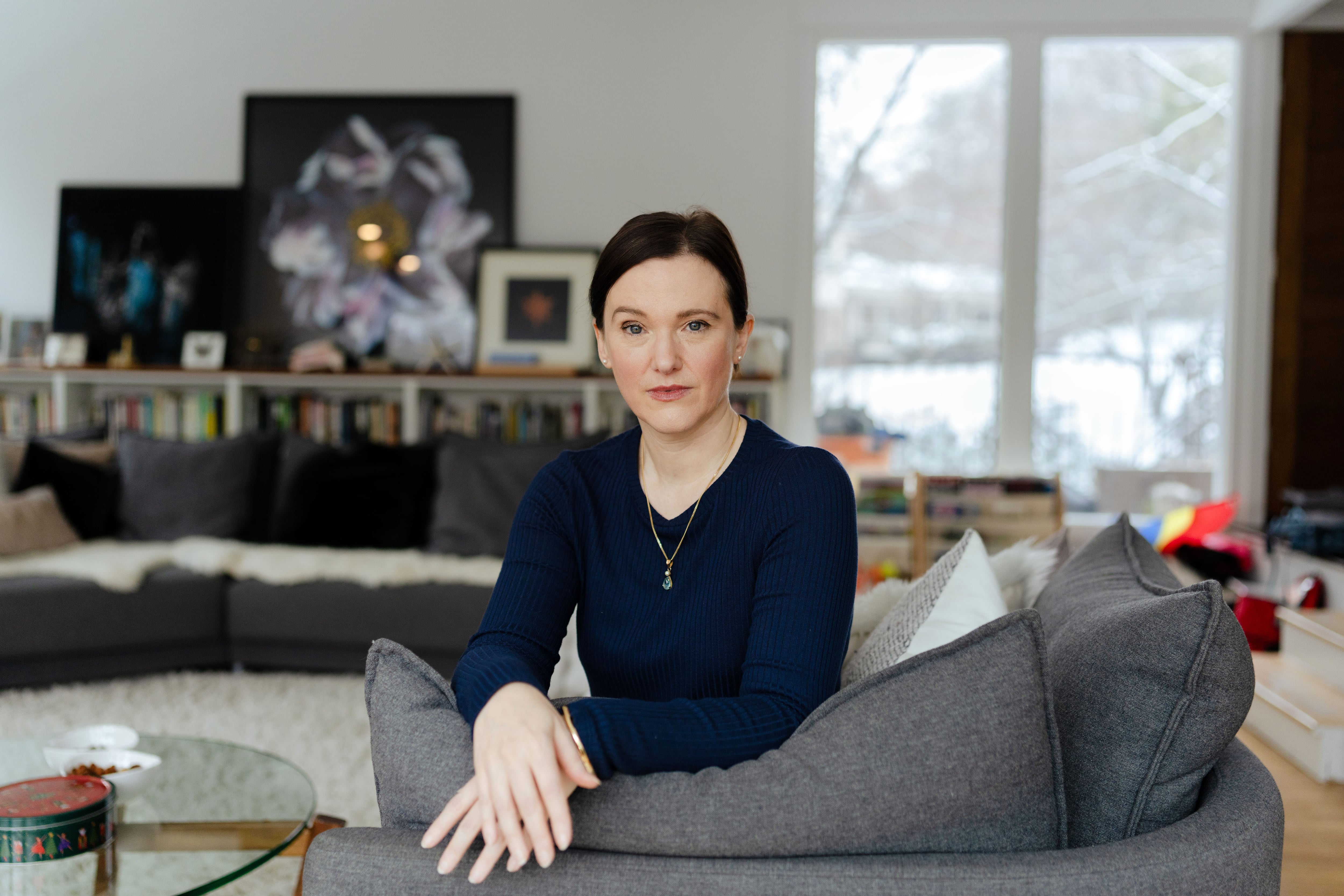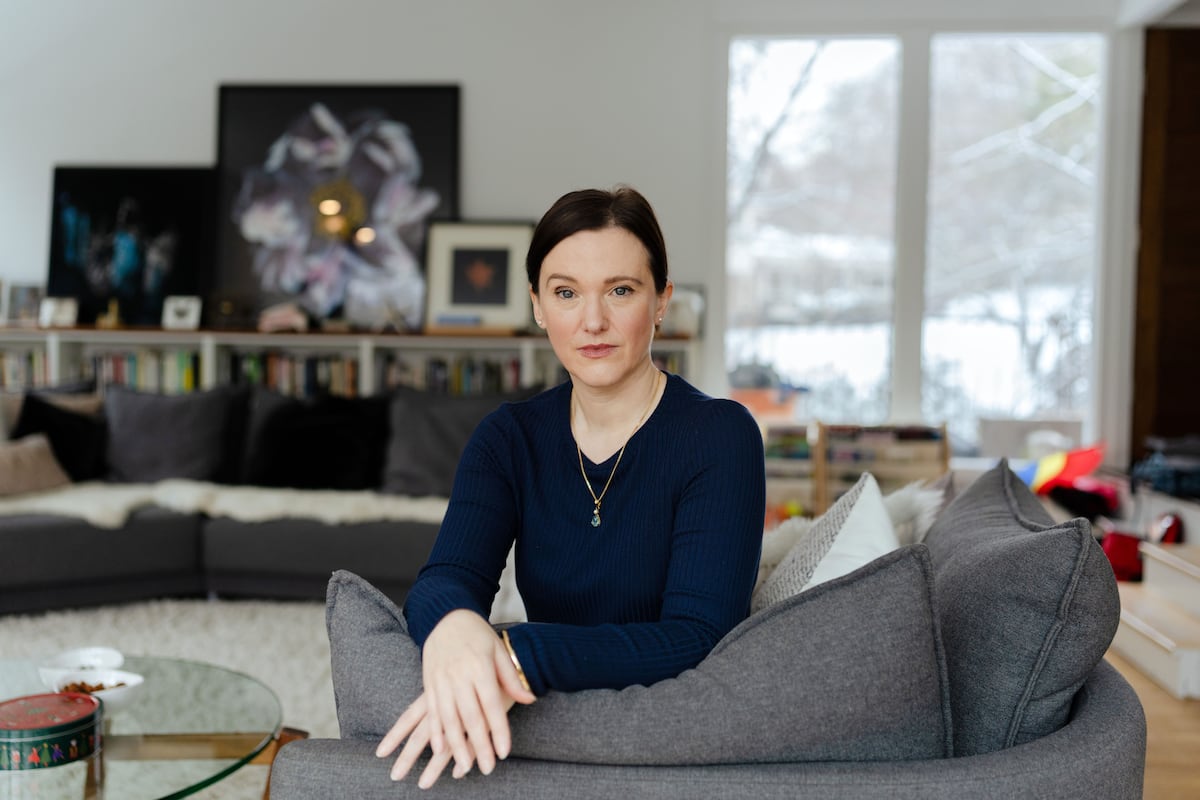
The work of neuroscientist Lisa Mosconi, whose name appears on The Times’ list of the world’s most influential scientists, addresses the relationship between menopause and the brain from a comprehensive perspective, a field she has been working on “since 2010, when no one was talking about it.” An Italian who has lived in the U.S. for two decades, she is a professor of neuroscience at Cornell University, where she directs two programs: the Women’s Brain Initiative and the Alzheimer’s Prevention Clinic. The Spanish-language launch of her third book, Menopause and the Brain, coincides with the presentation of her latest and most ambitious project, CARE, which aims to “reduce the risk of Alzheimer’s through endocrinology,” with 16 working groups and a budget of $50 million.
The interview takes place in her cozy New York home, an oasis of peace and nature shrouded in snow, one day after the Spanish parliament approved a proposal for comprehensive menopause care, something Mosconi hails as “a step in the right direction.” Conversely, she grimaces at the mention of the cuts in research by the new U.S. administration. Facing the fireplace, which is being stoked by her husband, also a scientist, Mosconi, a lively and warm communicator, emphasizes the demographic importance of menopausal women: “By 2050, there will be more than 1.23 billion women in the world who are menopausal or about to be. Almost the population of China.”
Question: The Spanish parliament has approved a proposal to devote more attention to menopause. Is there enough research?
Answer: It’s one of the least researched, diagnosed, treated, and funded fields of medicine. The U.S. National Institutes of Health allocated less than $10 million to it in 2019.
Q. Why is it still taboo?
A. Our society has practiced sexism and ageism. And when they are combined, you get menopausalism: making women feel less valuable than before.
Q. Fewer women, in short…
A. Men make us feel this way, but sometimes other women do too. Many struggle with this and embrace middle age.
Q. Menopause is not a disease, but its symptoms are treated as if it were.
A. Many doctors and scientists argue that there’s no need to overmedicate. Menopause is just part of normal aging, but it’s true that some women suffer. It’s not normal to have brain fog, memory lapses, palpitations, night sweats, inability to sleep, or feelings of depression. Many can’t handle it.
Q. So what exactly is it, a disease or a temporary disorder?
A. According to the textbooks, it’s a state of estrogen deficiency caused by hypogonadism. Very negative words: deficiency suggests something needs to be treated. Hypogonadism doesn’t sound good to anyone; it results from ovarian failure. They indicate there’s a problem that needs to be solved; that’s how most scientists approach it.
Q. Do you propose another approach?
A. From an evolutionary and neurological perspective, the correct definition would be “part of a very unique biological category called neuroendocrine transitions.” It’s not just aging, it’s not a disease: it’s a neuroendocrine transition in which the brain, the neurological system, and the endocrine, the hormonal system, change together at a certain point in time.
Q. How does the brain influence this?
A. Ten percent of women don’t have brain symptoms of menopause; they just notice they no longer have their periods. More than 80% experience at least one brain symptom. Eighty percent of them have hot flashes, which is a neurological symptom: the brain regulating body temperature. More than 50% may have depressive symptoms. Definitely, sleep disorders. Almost two-thirds of women experience brain fog and memory lapses. For most, this can last longer.
Q. And what is the relationship between menopause and Alzheimer’s disease?
A. Menopause may be the beginning. Brain fog does not resolve and gets worse. Some have suicidal tendencies. It is very hard to say that menopause is what triggers this disease. But the hormonal changes of menopause can be a trigger.
Q. How?
A. When a woman of childbearing age has her ovaries removed, a procedure that precipitates menopause, it triggers the buildup of Alzheimer’s amyloid plaques in the brain; inflammation occurs, and neurons begin to die. Menopause is a trigger; it occurs in animal models. Similar findings appear in women with premature menopause.
Q. When should it become a concern?
A. The average age of menopause is 51 or 52 in industrialized countries. Worldwide, it’s 49. Early menopause is before age 45, and even worse, before age 40. These women have a higher risk of Alzheimer’s and dementia, compared to women who go through menopause after age 50. If a woman has her ovaries removed before age 45, the risk is up to 70% higher. And that’s something we should be aware of; women in the U.S. are still having their ovaries removed for benign conditions, due to outdated recommendations and guidelines. Because it’s a cleaner surgery, not because it’s necessary. Can you imagine if a man went to the doctor with an infection in his testicle, and the doctor just said, ‘oh, let’s cut it out’?
Q. Women are twice as likely to develop Alzheimer’s, and that risk is even higher among Black women. Does economic status play a role?
A. That research hasn’t been done. We know that Black and Hispanic women have an even higher risk of developing dementia compared to Caucasian women. They also have a higher risk of having more severe menopause. This may explain the higher risk of dementia later in life, but the research hasn’t been done. The vast majority of studies on Alzheimer’s and menopause have been done on white women.
Q. So there is a correlation with the economy or social class…
A. Access to treatment is key. Only one in five [medical] residents received training in menopause in the U.S.
Q. Is there a magic solution?
A. Hormone therapy, although controversial, is still a possibility. Today, we recognize that if taken at the right time, in the right doses to relieve symptoms, and for the right amount of time, it’s quite safe. And the risk of breast cancer is considered rare — not zero, but rare.
Q. Are there no safer alternatives to hormone therapy?
A. There are solutions. Maybe not for all menopause symptoms, but for many. It’s not necessarily about medication, but rather lifestyle adjustments. A positive mindset can help. Learning, being intellectually active. Some supplements can help. And then medications, from non-hormonal to hormonal. Non-hormonal treatment is indicated for women who, for example, have a history of cancer, or blood clots, or other contraindications, such as liver disease.
Sign up for our weekly newsletter to get more English-language news coverage from EL PAÍS USA Edition







Comentarios